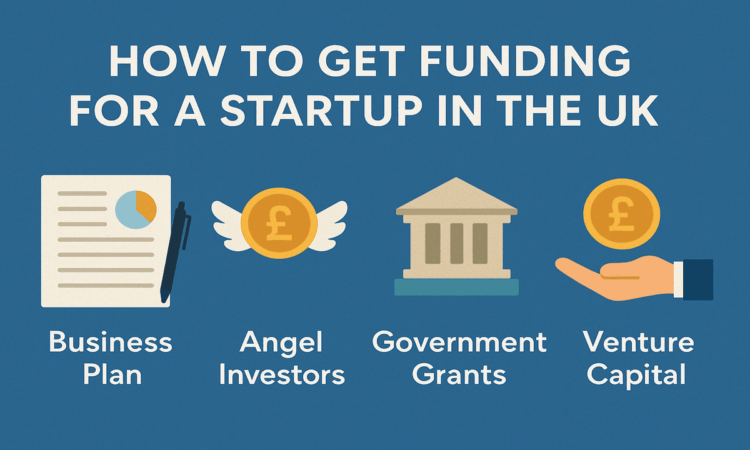Starting a business is exciting. You’ve got the idea, the drive, and maybe even a team. But let’s be honest. Without funding, it’s like trying to sail a boat without wind. If you’re wondering how to get funding for a startup in the UK, you’re not alone. It’s one of the biggest hurdles new entrepreneurs face.
But the good news? You’ve got options. Plenty of them. And here’s how you can access them.
1. Start with a Solid Plan
Before you ask anyone for money, you need a business plan. And not just one scribbled on the back of a napkin. Investors and lenders want to know what you’re offering, how you’ll make money, and what makes your idea different. Make it clear, realistic, and exciting.
Think of it as your pitch in paper form. A great plan boosts your chances of securing funding, no matter which route you take.
2. Tap into Government Grants and Support
Here’s something many new founders miss: the UK government wants you to succeed.
There are dozens of grants, competitions, and startup support schemes designed to give you a leg up. Some are sector-specific (like tech or green energy), while others support entrepreneurs in certain regions or backgrounds.
Check out:
- Innovate UK – offers funding for innovative businesses, especially in science and tech.
- Startup Loans – a government-backed scheme providing loans of up to £25,000, plus free mentoring.
- Local Enterprise Partnerships (LEPs) – they often have regional funding or support initiatives.
3. Look for Angel Investors
Now, let’s talk about angel investors. These are individuals who invest their own money into early-stage startups in exchange for equity. Think of them as your startup’s fairy godparent. But with questions.
Angels typically invest between £10k to £250k, and they often bring expertise and contacts to the table.
To connect with them:
- Join angel networks like UK Business Angels Association (UKBAA).
- Attend startup events and pitch nights.
- Get active on LinkedIn and platforms like Seedrs or Crowdcube.
But remember, angels want to see potential. Make your pitch personal, powerful, and numbers-driven.
4. Venture Capital (VC): The Bigger Leagues
If your startup is a bit more mature—or has the potential to scale fast—venture capital might be the next step.
VCs usually invest more money than angels, often starting from £500k and going into the millions. However, they’ll expect a strong growth trajectory, a killer team, and a clear exit strategy.
Not sure where to start? Some UK-based VC firms include:
Pro tip: Get a warm introduction if possible. Cold emails can work, but a referral from someone they trust works much better.
5. Crowdfunding: Let the Crowd Fund You
Crowdfunding is a great way to raise cash and build a fanbase. Platforms like Crowdcube, Seedrs, and Kickstarter allow you to pitch your idea to the public.
You can offer equity (ownership) or rewards (like early access to your product). It’s perfect if you have a consumer-facing product and a good story.
Just keep in mind. It takes effort. You’ll need a great campaign video, a solid marketing push, and a network ready to back you from day one.
6. Friends, Family, and Personal Capital
It might not sound glamorous, but friends and family funding is how many UK startups get off the ground.
If you go down this route, be clear: write things down. Treat it like a proper agreement. Mixing money and personal relationships can get messy. So protect both.
Also, don’t forget your own resources. Some founders bootstrap their way forward using savings or part-time gigs. It’s slower, sure, but it keeps you in full control.
7. Accelerators and Incubators
Think of these as business bootcamps. Accelerators like Techstars, Seedcamp, and Entrepreneur First offer funding, mentoring, and access to investors in exchange for equity.
They’re competitive but valuable. Especially if you’re still learning the ropes.
In the End
Figuring out how to get funding for a startup in the UK doesn’t have to feel like climbing Everest. Yes, it’s a challenge. But with the right plan, a bit of hustle, and a sprinkle of resilience, you can absolutely make it happen.
Whether it’s a government grant, an angel investor, or a well-run crowdfunding campaign, there’s no one-size-fits-all. So explore every option, build your network, and never stop pitching.
Your big idea deserves the spotlight. And the support to bring it to life.
























